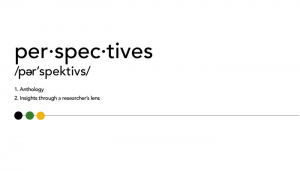Competition for our attention is at an all-time high. Social media, email, urgent project requests, colleagues who need advice, family tugs, household chores, and the ever-pervasive text messages are all contenders vying for response or action.
Multitasking: not the solution. Research on multitasking is plentiful. Recent neuroscience research tells us that the brain doesn’t really do tasks simultaneously, as we thought (hoped) it might. In fact, we just switch tasks quickly. Each time we switch from hearing music to writing a text message to talking to someone, there is a stop/start process that goes on in the brain. That start/stop/start process is rough on us, and rather than saving time it costs time (even very small micro seconds). It’s less efficient, we make more mistakes, and over time it can be energy zapping.
How then do we accomplish all that is required of us as efficiently as possible? Eliminating distractions can help. One study found that the average person wastes up to 759 hours per year (the equivalent of one month a year) on distractions in the workplace alone. Some distractions are easy to identify. Other distractions, such as psychological barriers, are much more subtle, but can sabotage our ability to move the needles forward.
So… How Do We Minimize Distractions to Get Things Done?
Learn to anticipate yourself.
According to a study conducted by the University of California Irvine, office workers are only able to focus on any single task for an average of three minutes and five seconds before they’re distracted. And, surprisingly, 44 percent of those distractions are internal – hunger, boredom, stress, sleep deprivation. The good news is that internal distractions are the only kind we can truly control. Know your patterns for hunger, boredom, stress, and sleepiness and plan ahead. Keep snacks at your desk, mix up your to-do list by interspersing boring and interesting tasks, or find a quiet place to take a short nap.
Send out busy signals.
If 44 percent of distractions are internal, then 56 percent of distractions come from external sources. People, email, phone calls, pets (if you work from home like I do), and chatter from other cubicles all fall into this category. To stop external distractions before they start, you have to give the right signals to the outside world. Put up your “busy” message on instant messenger and wear headphones (even if you’re not playing music). Stand to greet cube visitors to show them you want to move the conversation along. If you face the entrance of your cube or office when seated, move your computer to the back… to face the wall when working. Subtle queues like these might seem a tad passive-aggressive, but they might also save you from annoying distractions.
Make technology work for you.
Even though it might seem like the enemy, technology can be your anti-distraction friend. Turn off email alerts, set your phone to go straight to voice-mail or create an auto-response to text messages you receive that says something like, “In the middle of something; will get back to you later.” Block chunks of time on your calendar as “busy.” Unless your job involves life-or-death situations, everyone will manage just fine for the few hours when you’re off the grid.
Create or request a more flexible schedule.
In a recent study of 800 job seekers… the number one reason for wanting to work from home was to avoid distracting coworkers. Even if you can’t work from home full-time, maybe try to telecommute one or two days a week in the interest of productivity. Or, try rearranging your work hours to be in the office earlier or later than typical work hours for some quiet time. Even escaping to Starbucks for an afternoon of coffee-fueled, solitary work can help you be more productive.
Stop being so darn accommodating.
Are you a people-pleaser? A “yes man?” Is your favorite line, “I’m… on top of that?” The nicest people are often the busiest people, and when asked if they can help with something… they immediately accept to be polite or a team player. If you’re already overloaded… feeling like you never get anything done, the last thing you should do is take on new projects. Let people know that while you’d love to help, your plate is full. If your unproductive days are starting to win out over your productive ones, it’s time to figure out where your distractions originate, and put a stop to them.
By being proactive, employing technology, working a more flexible schedule and letting people know, both passively and actively, that you are b-u-s-y, you’ll be less distracted and more productive.
“Starve your distraction. Feed your focus.” – Charmaine Hayden

